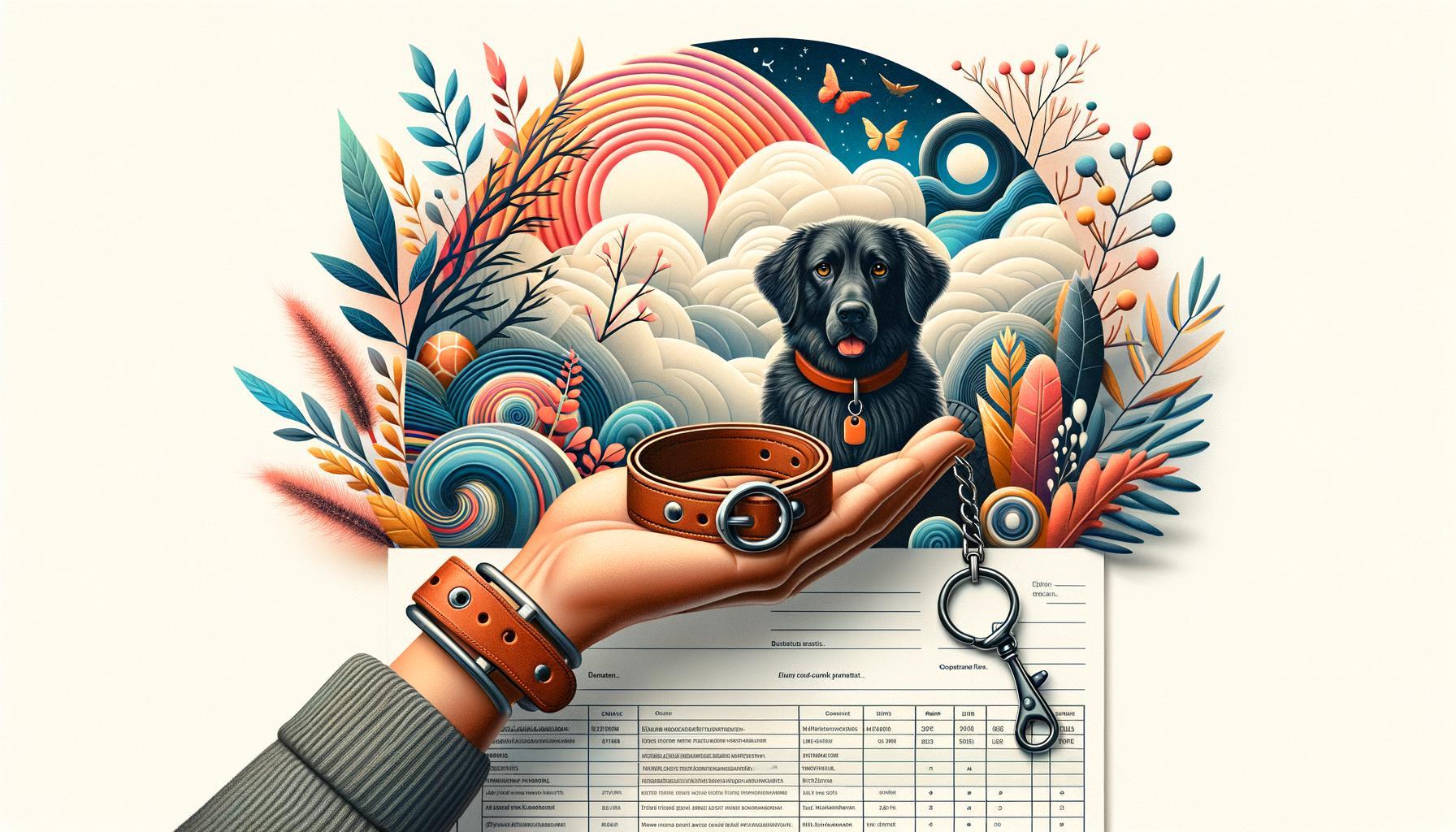There’s a quiet, unassuming magic that softens the edges of an otherwise relentless world, embodied in a creature small enough to fit snugly in the crook of your arm. Meet the Yorkshire Terrier, affectionately known as the Yorkie—a pint-sized powerhouse of comfort and companionship. In a world where emotional turbulence has become a common undercurrent, these diminutive dogs offer a unique solace, their fluttering presence capable of anchoring even the stormiest of emotional seas. This article delves into the heartwarming role of the Yorkie as an emotional support dog, exploring how such a tiny frame harbors an immense capacity to heal, uplift, and bring serene joy to those in need. Buckle up for a journey into the world of tiny comfort, where the flutter of paws means a gentle balm to the weary soul.
Table of Contents
- Understanding the Unique Qualities of Yorkies
- Training Yorkies for Emotional Support: Tips and Techniques
- The Health Benefits of Having a Yorkie as an Emotional Support Dog
- Fitting a Yorkie into Your Lifestyle as a Support Companion
- Addressing Common Challenges with Yorkies as Emotional Support Animals
- Concluding Remarks
Understanding the Unique Qualities of Yorkies
Yorkshire Terriers, often referred to as Yorkies, are a breed notable for their diminutive size and big personality, making them excellent companions. Their distinctive traits make them particularly well-suited for providing emotional support. Yorkies are incredibly affectionate and form deep bonds with their owners. Their small size makes them easy to carry around, which is ideal for individuals who need constant companionship. These dogs are also known for being highly perceptive and often respond to their owner’s emotional cues with a comforting presence.
Here are some unique qualities that make Yorkies great emotional support dogs:
- Size: Small and portable
- Affectionate Nature: Deeply loving
- Intelligence: Quick learners
- Low-Shedding: Great for those with allergies
- Alertness: High awareness of surroundings and moods
| Quality | Description |
|---|---|
| Size | Compact, easy to transport |
| Temperament | Affectionate and responsive |
| Maintenance | Requires regular grooming |
Training Yorkies for Emotional Support: Tips and Techniques
Understanding the Needs of Your Yorkie: Yorkies, known for their unwavering loyalty and loving nature, can make exceptional emotional support animals. To start, grasp their natural instincts and temperament. These dogs thrive on attention and consistency. Begin with frequent and short training sessions to build a strong foundation of trust and understanding. Be patient, use positive reinforcement techniques, and remember to celebrate small victories. Yorkies enjoy learning new tricks, so integrating playful activities can keep their minds sharp and stress levels low.
- Use **rewards** like treats or toys to motivate them.
- Incorporate **calming routines** such as gentle petting or soft-spoken commands.
- Ensure they have a designated **safe space** to retreat to when they need downtime.
- Implement **consistent daily schedules** for walks and feeding to create stability.
Socialization and Emotional Bonding: Building strong emotional connections is fundamental for Yorkies serving as emotional support dogs. Early and continuous socialization helps them stay relaxed and confident around other people and animals. Introduce them to various environments gradually, ensuring each experience is positive. Building this emotional resilience will help them better support you in different settings.
| Tip | Description |
|---|---|
| Regular Socialization | Introduce them to new people, pets, and settings slowly. |
| Positive Reinforcement | Praise, treats, and affection for good behavior. |
| Interactive Play | Toys and games that stimulate their minds and bond with you. |
By approaching your Yorkie’s training with these thoughtful techniques, you’ll foster a mutually beneficial relationship filled with love and support.
The Health Benefits of Having a Yorkie as an Emotional Support Dog
Yorkshire Terriers, with their petite stature and boundless affection, can offer numerous emotional and mental health benefits to their owners. Firstly, their innate ability to sense and respond to human emotions makes them exceptional companions for those struggling with anxiety, depression, or stress. These pint-sized pooches are known for their unwavering loyalty and keen intuition, often providing comfort through simple acts of closeness, such as curling up on a lap or softly cuddling. Their vivid and playful personalities offer moments of joy, laughter, and distraction, which can be incredibly therapeutic.
Moreover, the daily responsibilities involved in caring for a Yorkie can help establish consistent routines and encourage physical activity, both of which are crucial for mental health. Taking your little friend for regular walks, grooming sessions, and playtime not only fosters a sense of purpose but also ensures you remain active and engaged. Additionally, Yorkies make for excellent social catalysts, often drawing friendly attention and initiating conversations during outings. This can be particularly beneficial for individuals who may feel socially isolated or lonely.
| Benefit | Description |
|---|---|
| Emotional Connectivity | Yorkies can sense moods and provide comforting companionship. |
| Consistent Routines | Caring for a Yorkie fosters healthy habits and schedules. |
| Social Interaction | Encourages social contact through attention and conversation. |
Fitting a Yorkie into Your Lifestyle as a Support Companion
Integrating a Yorkie into your daily routine as an emotional support companion is both a rewarding and enriching experience. Just imagine waking up to those expressive eyes and small tail wags—such small gestures can boost your mood before you even step out of bed. **Yorkies are incredibly adaptable**; their compact size means they fit comfortably in small apartments and homes without difficulty. They do not require extensive exercise, a daily stroll or some light play indoors keeps them content. Besides, their hypoallergenic coats make them suitable for those who may suffer from allergies. Imagine having a dedicated little companion for your self-care rituals, ready to provide comfort as you meditate, read a book, or even enjoy your morning tea.
To seamlessly blend a Yorkie into your lifestyle, consider the following tips:
- Create a safe space: A small, cozy corner with their favorite blanket and toys provides security and comfort.
- Establish a routine: Yorkies thrive on consistency. Set specific times for feeding, walking, and play to ease their adaptation.
- Travel-friendly features: Their petite size allows them to be excellent travel companions, fitting snugly in approved carriers even for flights.
- Training: Yorkies are intelligent and responsive to training. Teach them simple commands to enhance communication and strengthen your bond.
| Activity | Time Commitment | Benefit |
|---|---|---|
| Morning Walk | 15-20 minutes | Boosts mood and ensures exercise |
| Playtime | 10-15 minutes | Enhances bonding and mental stimulation |
| Training Session | 5-10 minutes | Improves obedience and communication |
Addressing Common Challenges with Yorkies as Emotional Support Animals
While Yorkies are undeniably charming and affectionate, making them excellent companions and emotional support animals, they come with their own set of challenges. One common issue is their **high energy levels**. Despite their small size, Yorkies are highly energetic and require regular exercise to stay happy and healthy. Without adequate physical activity, they might become anxious or display destructive behavior. Providing your Yorkie with daily walks, interactive play sessions, and mental stimulation is essential to keeping them balanced and ensuring they fulfill their role as an emotional support companion.
Another significant challenge is their **tendency to bark excessively**. Yorkies are known for being vocal, which can be overwhelming in certain living situations, such as apartment complexes with noise restrictions. Training your Yorkie to manage barking through positive reinforcement techniques can be helpful. Encouraging them to remain calm in various situations, along with regular socialization, can mitigate this issue and enable them to serve more effectively as emotional support animals.
| Challenge | Solution |
|---|---|
| High Energy Levels | Regular Exercise and Mental Stimulation |
| Excessive Barking | Positive Reinforcement Training |
Concluding Remarks
As our journey through the tiny yet mighty world of Yorkies comes to a close, it becomes evident that these little companions offer more than just wagging tails and soulful eyes. They are pint-sized bundles of love, adept at sensing our emotional landscapes and providing the kind of comfort that only a warm, fuzzy presence can bestow. In the patchwork quilt of emotional support animals, the Yorkie undoubtedly adds its own vibrant, indispensable square.
Whether nestled in your lap during a stressful workday or bounding joyously at your side on a morning walk, these petite partners prove time and time again that emotional support doesn’t have to come in grand gestures or imposing forms. Sometimes, it fits perfectly in the nooks and crannies of our lives, just like a Yorkie in the crook of your arm. As with all creatures who touch our hearts, their impact is as profound as it is enduring, reminding us that comfort can indeed come in the smallest of packages.







Leave a Reply